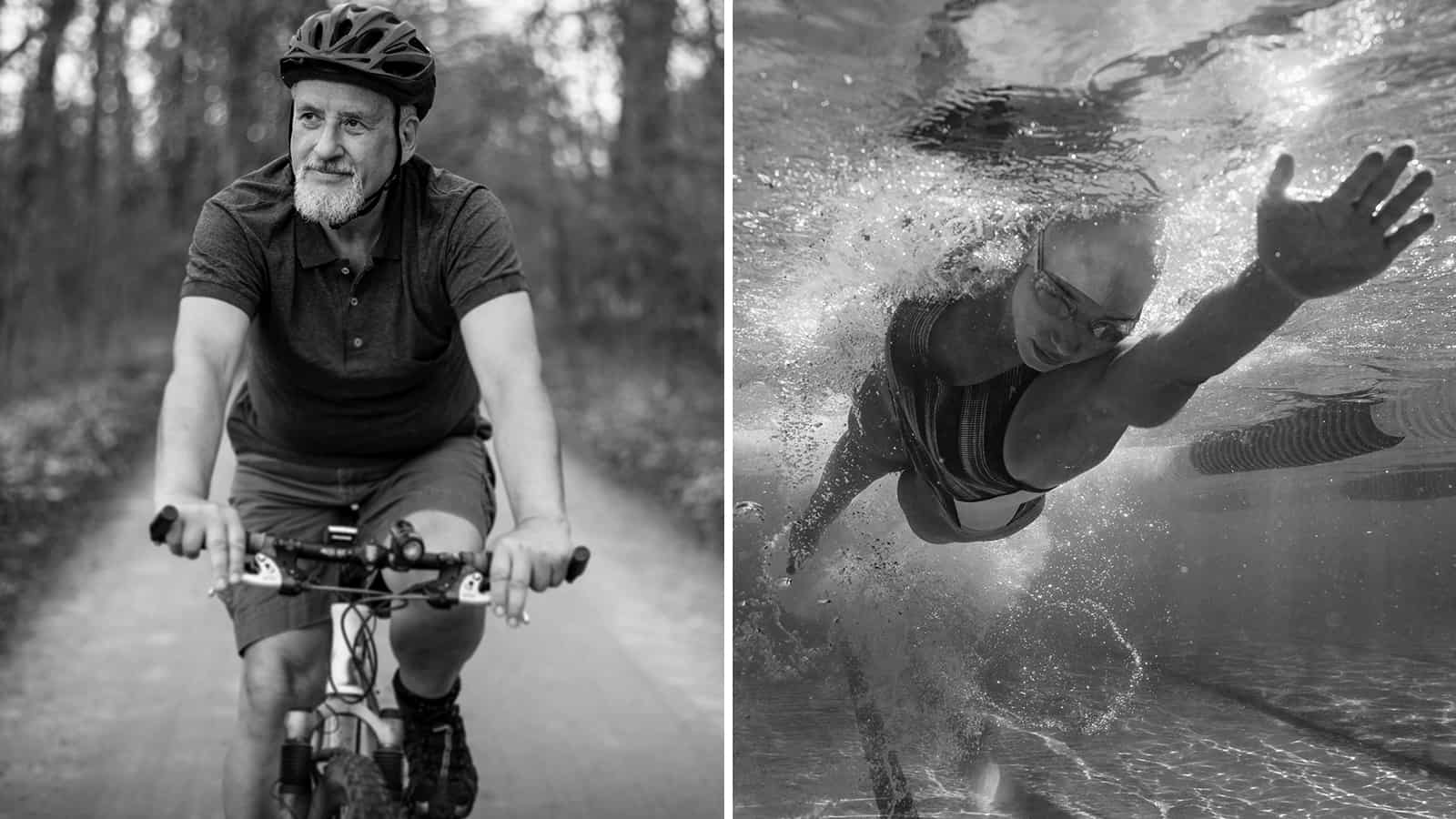Studies show that intensive exercise can help relieve symptoms of chronic anxiety. Of course, this doesn’t mean training provides a universal answer for mental health problems. Many other factors contribute to anxiety, such as stress levels, eating habits, brain chemistry, careers, and home life. However, exercising can provide a buffer against the stresses of modern life.
Anxiety often makes people feel paralyzed or afraid for no apparent reason. This feeling can strike unexpectedly, making them feel like they have no control over their mind. Exercise helps to boost confidence and release built-up tension, which eases anxiety temporarily. Over time, these cumulative effects can lead to increased mental resilience and perhaps total relief of anxiety.
How Intensive Exercise Helps Relieve Chronic Anxiety
Chronic anxiety doesn’t discriminate; it can affect anyone at various stages in life. Since our brains haven’t fully evolved for this modern world, many people experience anxiety. We’re no longer scanning the horizon for predators, but we have many other problems.
Since we live more sedentary lifestyles than our ancestors, these stresses accumulate in our bodies. Over time, it overwhelms our nervous systems and can cause chronic anxiety. However, perhaps we should look to the past to answer our mental health epidemic. Moving our bodies can reduce anxiety because it provides an outlet for excess energy.
Research shows that intensive exercise, such as aerobic activities, can help treat anxiety. High-intensity workouts may include running, biking, dancing, brisk walking, or swimming. It’s essential to choose something you can stick with long-term to reap the full benefits.
How Working Out Can Help Alleviate Anxious Feelings
Exercising helps relieve anxiety by:
- Take the attention off your thoughts and onto an activity.
- Reducing muscle tension, where most anxiety and stress get stored.
- Increasing your heart rate alters brain chemicals. Intensive exercise floods the brain with neurotransmitters such as serotonin, gamma-aminobutyric acid (GABA), brain-derived neurotrophic factor (BDNF), and endocannabinoids.
- Activating frontal regions of the brain govern executive function, including the amygdala. Exercise helps strengthen neural circuits in this part of the brain, effectively reducing anxiety.
- Increases self-efficacy, which makes a person less prone to anxious feelings.
Best Intensive Exercise to Reduce Anxiety Symptoms
So, you know that intensive exercise can help you feel less anxious and more relaxed. However, choosing the best exercises to relieve anxiety is not always easy. Luckily, experts have found that a few exercises reign supreme when easing anxious feelings.
- Running boosts norepinephrine, a neurotransmitter that increases focus and alertness. It also releases endorphins, feel-good hormones responsible for the “runner’s high.” It can also enhance mental clarity because of increased oxygen in the prefrontal cortex. After just one running session, they were notable but increased with regular exercise.
- Hiking or walking in the woods. When you’re surrounded by nature, it’s easy to forget about all the daily worries. Green spaces have been proven to lower anxiety, blood pressure, and heart rate because nature soothes the senses. In a Japanese study published in Environmental Health and Preventive Medicine, researchers told participants to walk in either a forest or city for 20 minutes. They found that those who walked in the woods had lower cortisol than those who went on an urban walk.
- Yoga combines breathing techniques with specific postures to calm the mind and reduce stress. While some types of yoga are slower-paced, others offer intensive exercise. In 2012, a research team studied the impact of yoga on anxiety and stress. They reviewed trials and published the results in Alternative Medicine Review. In 25 of the 35 studies, participants noticed a significant decline in anxiety and stress levels after yoga practice.
Since many people don’t like taking anxiety medications, exercise provides an excellent natural remedy. The list above isn’t exhaustive by any means. Still, it can offer some ideas for a workout routine. In addition to intensive exercise, other lifestyle changes can ease chronic anxiety.
Other Ways to Lower Anxiety Levels
- Give technology a break. We’re overstimulated with all our technology, between phones, computers, TVs, and other gadgets. Our minds need a break, so make sure to allot time each day for true rest. Many people use their downtime to scroll on social media or binge-watch a show, but this doesn’t relax your mind. To truly experience peace, it’s essential to shut everything off sometimes.
- Eat a balanced diet. Our diets impact our mental health in profound ways. Studies have linked processed foods high in artificial sweeteners, sugar, gluten, and inflammatory omega-6 fatty acids to anxiety. On the other hand, eating a balanced diet full of fresh fruits, vegetables, nuts, seeds, and omega-3 fatty acids protects mental health.
- Get your beauty rest. Today, many people suffer from chronic sleep deprivation, worsening anxiety, and depression. Put yourself first and make sure you’re sticking to a regular sleep schedule. Notifications on your phone or favorite TV show can always wait until the following afternoon.
- Live a slower-paced life. To put it bluntly, we’re not designed for such a fast pace of life. Don’t feel inadequate or ashamed if you can’t or don’t want to keep up. Your mental health should come first, so if you feel overwhelmed, consider downsizing to reduce monthly bills. If you have less to pay for, you’ll have more free time and fewer mental burdens.
Final Thoughts on Engaging in Intensive Exercise to Reduce Chronic Anxiety
In recent years, anxiety levels have skyrocketed due to several factors. The pandemic, financial worries, climate change, career stress, and daily life, in general, have contributed to the mental health crisis. However, studies have shown that intensive exercise may help reduce anxiety symptoms. In addition to other lifestyle factors such as eating well, prioritizing sleep, and embracing minimalism, it’s possible to manage anxiety.
Of course, exercise and lifestyle changes don’t permanently eliminate anxiety for everyone. Many people find relief with medication, therapy, and natural remedies.
















 Community
Community

